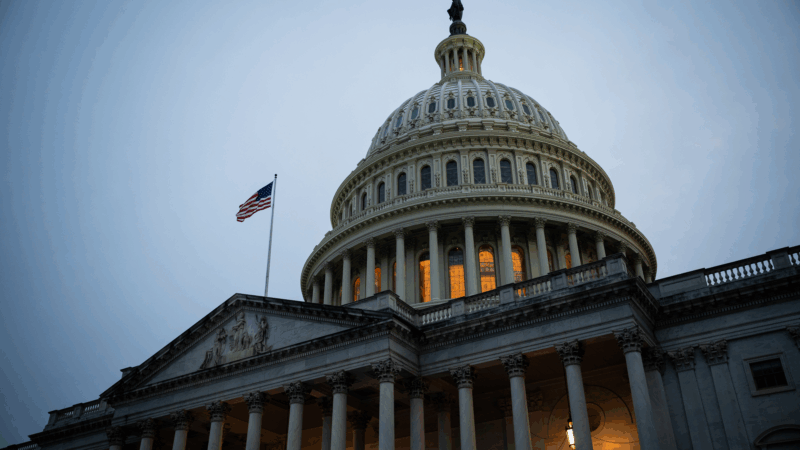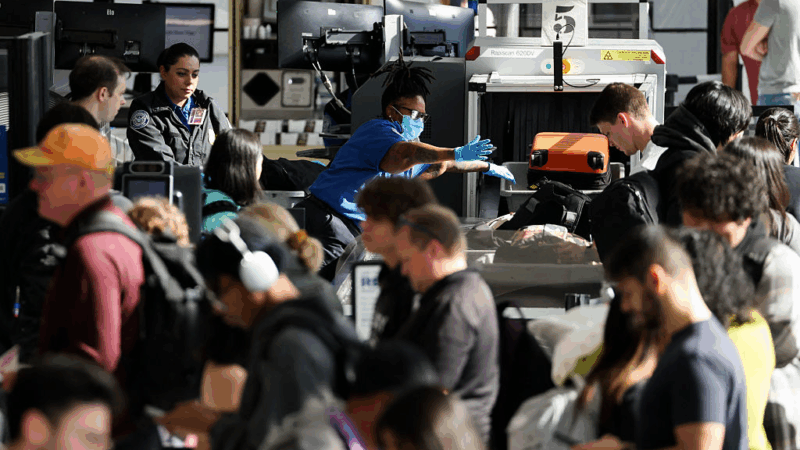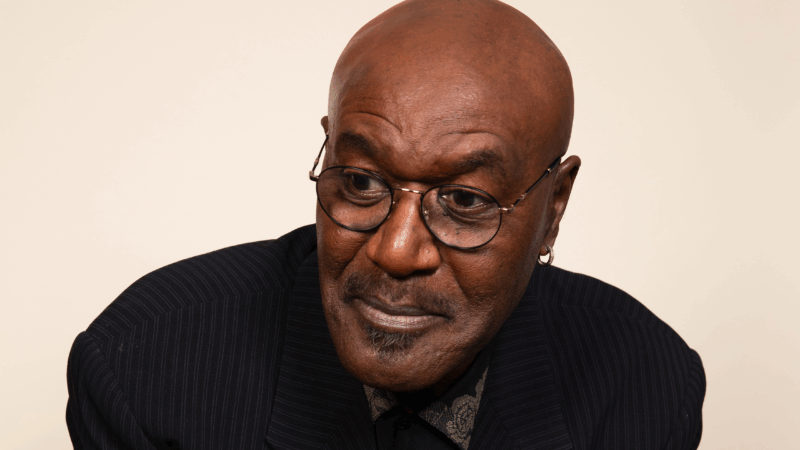Government shuts down after Congress fails to reach a funding agreement
Much of the federal government is now shut down after Republicans and Democrats in the Senate failed to agree on a pair of dueling funding bills to keep the government open.
Republicans voted to block a bill proposed by Democrats that included government funding through the end of October and an extension of federal healthcare subsidies that are set to expire at the end of the year. The second bill was also defeated nearly along party lines. Democrats refused to join Republicans to approve a short-term measure passed by the House that would keep the government funded at current levels through Nov. 21. Both measures needed 60 votes to pass.
Democrats have insisted that they will not vote for a spending measure unless Republicans agree to extend the subsidies for health insurance plans purchased through the Affordable Care Act. That did not happen.
Shortly after the failed votes, Office of Management and Budget Director Russell Vought instructed affected federal agencies to “execute their plans for an orderly shutdown.”
It is unclear exactly how far-reaching the impact of a shutdown will be or how long the suspensions of funding will last. Critical services, including Social Security, VA benefits and Medicare and Medicaid payments, will continue, but people who need those resources could face delays.
Federal jobs labeled as nonessential will experience more direct impacts, meaning there could be slowdowns in some government services and many federal employees will be left unpaid.
The Congressional Budget Office estimates about 750,000 federal employees may be furloughed daily.
President Donald Trump has also indicated he may take additional action to reshape the government. On Tuesday afternoon, he alluded to possibly carrying out mass firings of federal workers and eliminating programs in the event of a shutdown.
“We can do things during the shutdown that are irreversible, that are bad for them,” Trump told reporters in the Oval Office on Tuesday. “We can cut large numbers of people. We don’t want to do that, but we don’t want fraud, waste and abuse.”
Some impacts will be immediate, while others will only kick in if a shutdown drags on.
- Hundreds of thousands of federal workers and active-duty service members may miss paychecks starting in mid-October.
- Air traffic controllers and Transportation Security Administration employees are considered essential employees, but some have called off sick during past shutdowns when they were asked to work without pay.
- The Supplemental Nutrition Program for Women, Infants, and Children commonly known as WIC may soon run out of money.
- It is unclear whether National Parks will remain open. During the last shutdown, parks remained open even though they went unstaffed.
Ahead of the funding deadline, Democrats and Republicans dug in
As the funding deadline neared, lawmakers ratcheted up the finger-pointing over the impending shutdown.
Democrats continue to argue that they are fighting to protect Americans’ health care, as they push to extend the insurance subsidies and also attempt to repeal cuts to health care programs that were enacted by the GOP’s tax and spending bill passed earlier this summer.
“We see now Republicans are plunging America into a shutdown, rejecting bipartisan talks, pushing a partisan bill and risking America’s health care,” Minority Leader Chuck Schumer said Tuesday night.
But, Republicans have accused Democrats of taking the federal budget hostage to advance their policy goals.
“Senate Democrats have sacrificed the American people to Democrats’ partisan interests,” Majority Leader John Thune said shortly before the government shut down.
How long will the shut down last?
Republican leaders say they plan to continue holding votes on their stopgap funding measure, hoping they can peel off more Democrats to join them as a shutdown wears on.
“When we had a vote on our proposal to keep the government open right before the recess, we had one Democrat vote,” Republican Whip John Barrasso said Tuesday night. “Tonight, we had three. So the cracks are beginning to show.”
Two Democrats, Sens. John Fetterman of Pennsylvania, and Catherine Cortez-Masto of Nevada and one independent, Angus King of Maine—who caucuses with Democrats—voted for the Republican bill on Tuesday.
“We need a bipartisan solution to address this impending health care crisis, but we should not be swapping the pain of one group of Americans for another,” Cortez-Masto said.
But six Democrats who voted yes on the continuing resolution when it first came for a vote in March declined to support the measure this time around. And like Thune, Schumer also said he believes some members on the other side may eventually find their position untenable.
Sen. Rand Paul, R-Ky., was the lone Republican to oppose the measure Tuesday.
The last government shutdown, from December 2018 to January 2019, lasted 35 days and was the longest in U.S. history.
With Republicans and Democrats both signaling they are unwilling to budge, there is no clarity about the path out of the shutdown – or how long it will last.
Travel industry pushes Congress to end DHS shutdown and pay federal security workers
With the busy spring break travel season looming, travel and aviation industry leaders urged Congress to end the stalemate over DHS funding before workers at TSA and ports miss a full paycheck.
Trump fires Kristi Noem as DHS chief, names Sen. Markwayne Mullin to replace her
President Trump has fired his homeland security secretary, Kristi Noem, and said Markwayne Mullin, a senator from Oklahoma, would replace her.
They were led off course in a big race. But a fix is more complicated than prize money
Top finishers in the Atlanta half marathon are calling for U.S. track officials to ensure that Jess McClain and two other athletes aren't excluded from the world championships because of an error.
No matter what happens at the Oscars, Delroy Lindo embraces ‘the joy of this moment’
Lindo is nominated for best supporting actor for his role in Sinners. At the BAFTA awards on Sunday, Lindo was presenting when a man with Tourette syndrome in the audience yelled out a racial slur.
Between Megan Moroney and Ella Langley, country women rule the charts
It's a big week for women in country music — and, it turns out, for women whose songs are favored by women in figure skating.
A Jan. 6 rioter pardoned by Trump was sentenced to life in prison for child sex abuse
Since receiving presidential pardons, dozens of former Capitol rioters have gotten into more legal trouble. In Florida, Andrew Paul Johnson was sentenced to life in prison for child sex abuse.








